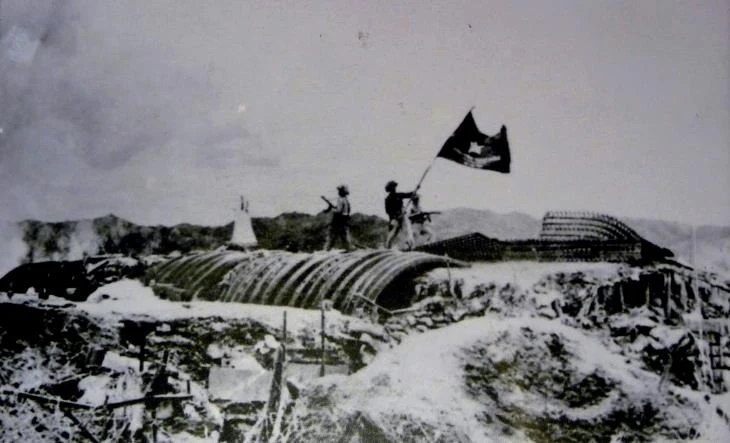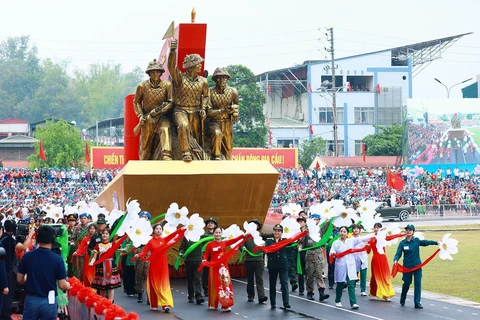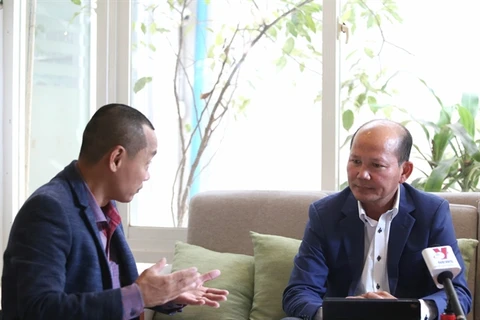
Algiers (VNA) – Vietnam, the first nation to rise to liberation to regain national sovereignty from world powers, was the model for colonial countries to follow, Prof. Daho Djerbal, a historian and lecturer at University of Algiers-Bouzareah, said in an interview granted to the Vietnam News Agency on the occasion of the 70th anniversary of Dien Bien Phu Victory.
It was Vietnam and the Vietnamese people who paved the way for national liberation struggles in former colonial countries around the world, underlined Prof. Djerbal, who is also Director of Algerian journal of social criticism NAQD.
According to the scholar, the revolutions of Vietnam and Algeria share many similarities, noting that both countries conducted a general uprising in 1945. Vietnam was the first country to seize the opportunity right from the 1940s when World War II weakened Japan to conduct a nationwide uprising to expel the invaders. However, unlike the uprising of Vietnam, which was led by the Indochinese Communist Party and President Ho Chi Minh, the uprising in Algeria was brutally repressed.
In 1954, the Dien Bien Phu Campaign of Vietnam started in March, and the Algerian armed resistance broke out in November, he noted.
The scholar emphasised that after Vietnam's Dien Bien Phu Victory, Algerian political leaders and revolutionaries recognised that only by following Vietnam's way could they win, and armed struggle was crucial because France would never leave Algeria through peaceful negotiations. Thus, Vietnam was an ideological and political pioneer that opened the path to independence.
Despite differences in tactics and geostrategy, from Vietnam's approach, Algeria found a way to solve its difficulties. It was to call for the strength of the entire people, combined with political and military strength under the leadership of the party, he stated.
According to Prof. Djerbal, the Dien Bien Phu Victory was an event that echoed across the 20th century. It was the first time in history that a Western army was defeated by a colonial nation. This victory inspired the Algerian people, he affirmed, stressing that President Ho Chi Minh and General Vo Nguyen Giap have become the image of heroes in the mind of most Algerian people.
He said that through 50 years of teaching contemporary history, international relations, economics, society and politics at universities, he recognised that for the first time in history, the concepts of victory, strength, and sovereignty have become Asian thanks to Vietnam. For Algeria in particular and for colonial peoples in general, the Dien Bien Phu Victory was the beginning of a new period that has continued to this day. Indeed, in 1954, in the second half of the twentieth century, the West had to step back to make room for the colonial peoples, ending Western hegemony.
According to Professor Djerbal, for Niger, Mali, Burkina Faso, Central Africa and other countries, since the Dien Bien Phu Victory, they had fought against the French colonialists and liberated their nations. The impact of the Dien Bien Phu victory was both direct and indirect in terms of politics and strategy, he stated.
"For our generation, the victory of the Vietnamese people was also our own. And we have continued the victory of the Vietnamese people and the people of Asia," the scholar emphasised./.






















